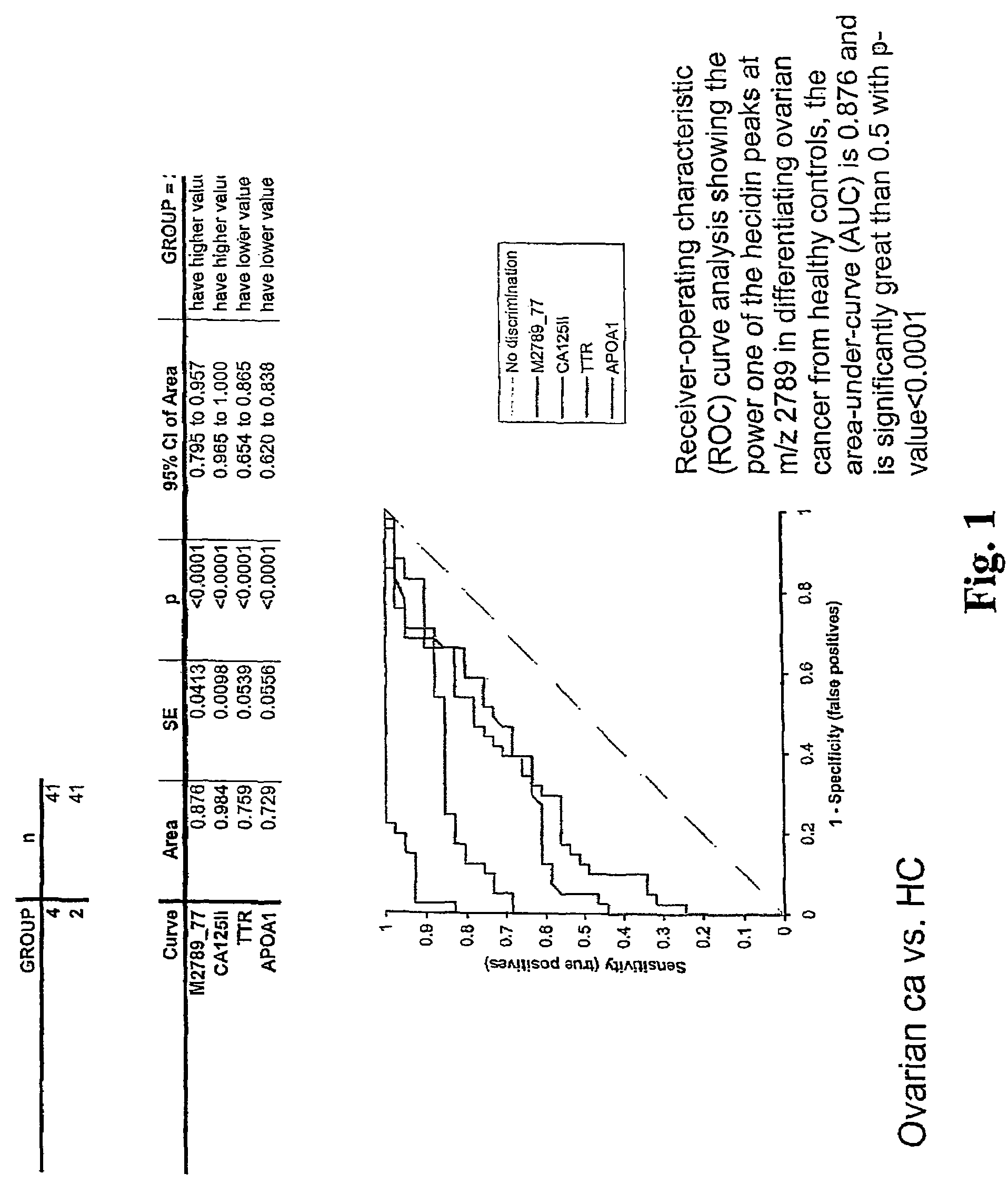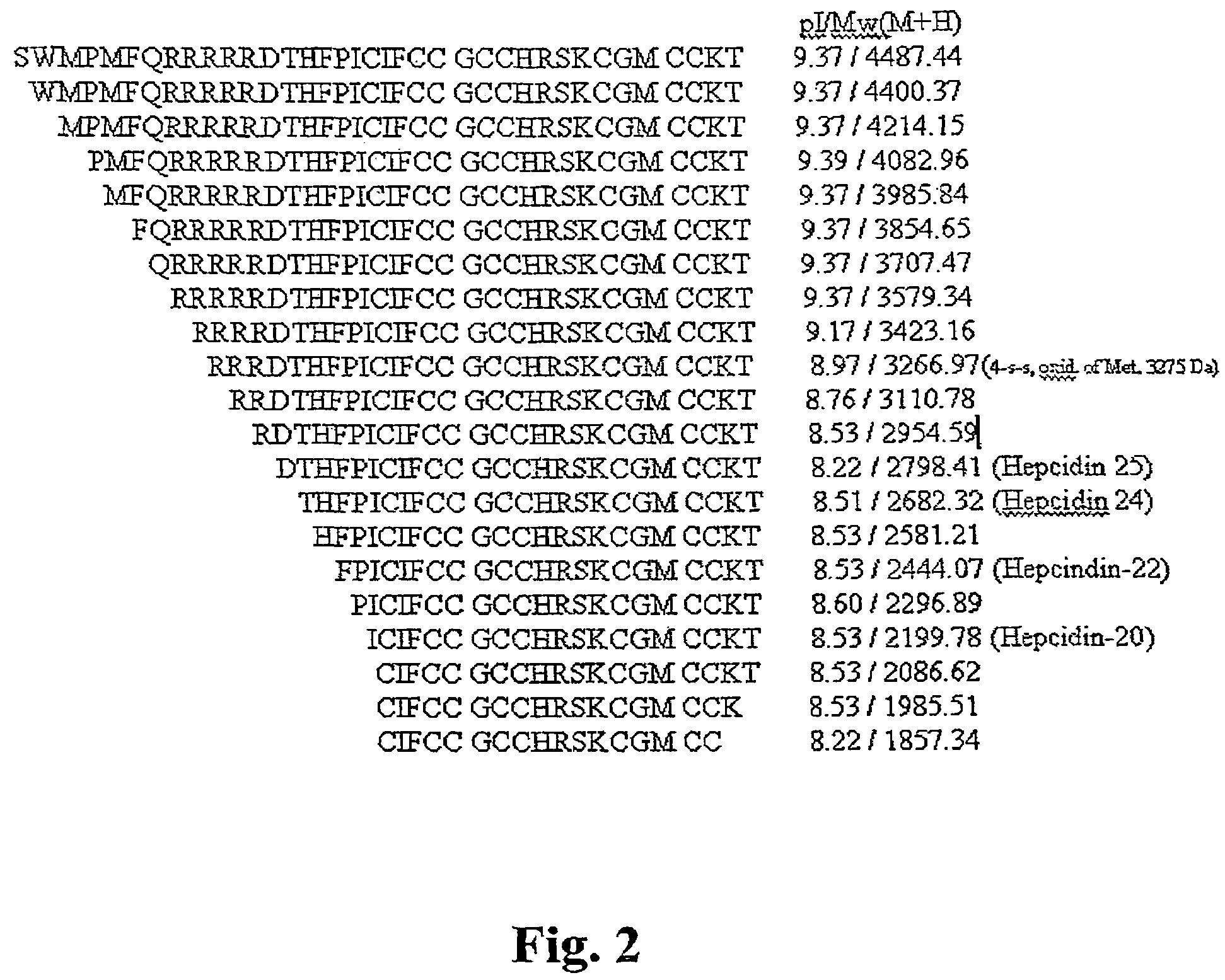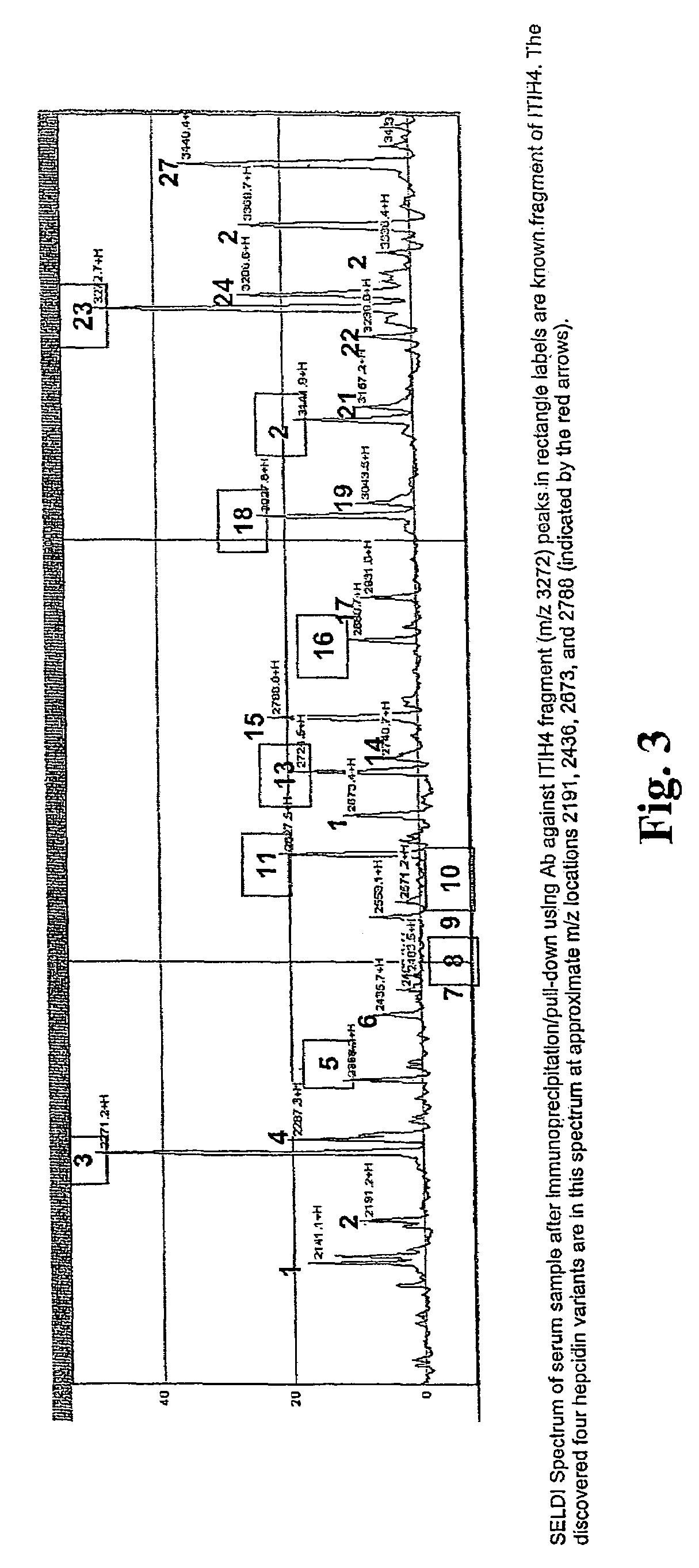Biomarker for ovarian and endometrial cancer: hepcidin
a biomarker and endometrial cancer technology, applied in biocide, instruments, peptides, etc., can solve the problems of no cost effective screening test, poor prognosis of ovarian cancer diagnosed, cost and risk associated with confirmatory diagnostic procedures, etc., to improve the predictive power of diagnostic tests, increase the level of hepcidin, and reduce the level of transthyretin
- Summary
- Abstract
- Description
- Claims
- Application Information
AI Technical Summary
Benefits of technology
Problems solved by technology
Method used
Image
Examples
example 1
11.1. Example 1
Discovery of Biomarkers for Ovarian Cancer
[0207]It is understood that the examples and embodiments described herein are for illustrative purposes only and that various modifications or changes in light thereof will be suggested to persons skilled in the art and are to be included within the spirit and purview of this application and scope of the appended claims.
[0208]Samples: Serum and urine samples were acquired from the MDACC Ovarian cancer sample bank (MD Anderson). The samples had been collected from cancer patients pre-operatively from years 2000 to 2004 and stored at −80° C. Sample distribution was as follows: ovarian cancer (OvCa), 200; endometrial cancer, 50; cervical cancer, 50 and benign, 50. Many, but not all, of the OvCa and benign serum and urine samples were from the same patient. The samples were run in two sets. The first set comprised the 200 ovarian cancer samples and 50 benign samples. This provided an initial list of candidate biomarkers. To test t...
example 2
11.5. Example 2
Discovery of Biomarkers for Ovarian Cancer
[0232]Previous work identified a fragment of inter-alpha trypsin inhibitor heavy chain 4 (ITIH4, also sometimes referred to as ITIH4) as a biomarker with discriminatory power in detecting ovarian cancer. In this example, the correlation networks constructed using expression data of proteins in clinical serum samples that co-precipitate with ITIH4 fragment were analyzed.
[0233]The first analysis was done using a panel of 142 serum samples (41 with ovarian cancer, 41 healthy controls, and 20 each with breast, colorectal, and prostate cancers). Expression data were generated in triplicate through immunoprecipitation / pull-down using a polyclonal antibody generated against the ITIH4 3272 m / z fragment, followed by surface-enhanced laser desorption / ionization mass spectrometry. For validation, samples from two additional sites were similarly processed. The first set consisted of 114 ovarian cancer samples (16 pretreatment, 17 post-tre...
example 3
11.6. Example 3
Biomarker Assay Using Large Sample Set
[0238]To further evaluate the quality of hepcidin as an ovarian cancer marker, a large multi-institutional study was performed. A total of 607 serum samples from five sites were analyzed using SELDI TOF-MS protocols optimized for the seven biomarkers. They included 234 women with benign gynecologic diseases, and 373 patients with invasive epithelial ovarian cancer (101 early stage, 231 late stage, and 40 stage unknown). Among them, 165 benigns and 228 cancers had a CA125 available at time of analysis. The median and quartiles of CA125 for benign, early stage, and late or unknown stage were 26 / 11 / 57 IU, 80 / 22 / 434 IU, and 234 / 40 / 1114 IU, respectively. The biomarkers were assessed individually using the Mann-Whitney U Test. A linear composite index was derived in an unsupervised fashion using data from one site and then calculated for the remaining data using the fixed formula. ROC curve analyses were performed on data from individua...
PUM
| Property | Measurement | Unit |
|---|---|---|
| pH | aaaaa | aaaaa |
| pH | aaaaa | aaaaa |
| pH | aaaaa | aaaaa |
Abstract
Description
Claims
Application Information
 Login to View More
Login to View More - R&D
- Intellectual Property
- Life Sciences
- Materials
- Tech Scout
- Unparalleled Data Quality
- Higher Quality Content
- 60% Fewer Hallucinations
Browse by: Latest US Patents, China's latest patents, Technical Efficacy Thesaurus, Application Domain, Technology Topic, Popular Technical Reports.
© 2025 PatSnap. All rights reserved.Legal|Privacy policy|Modern Slavery Act Transparency Statement|Sitemap|About US| Contact US: help@patsnap.com



